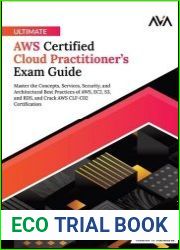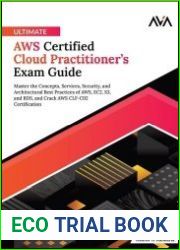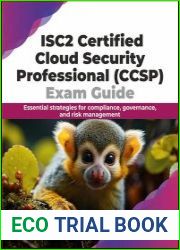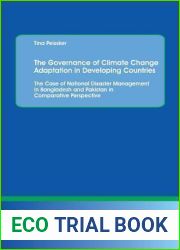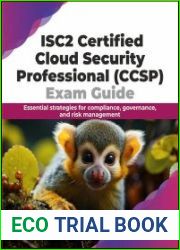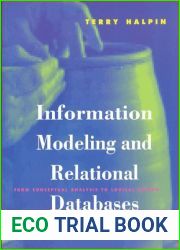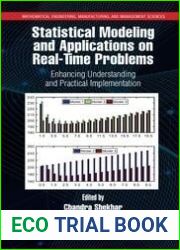
BOOKS - Ecologically Based Weed Management Concepts, Challenges, and Limitations

Ecologically Based Weed Management Concepts, Challenges, and Limitations
Author: Nicholas E. Korres, Ilias S. Travlos, Thomas K. Gitsopoulos
Year: 2023
Pages: 343
Format: EPUB
File size: 64,4 МБ
Language: ENG

Year: 2023
Pages: 343
Format: EPUB
File size: 64,4 МБ
Language: ENG

Ecologically Based Weed Management Concepts Challenges and Limitations The book "Ecologically Based Weed Management Concepts Challenges and Limitations" presents a comprehensive overview of the challenges and limitations of ecologically based weed management concepts, highlighting the need for a more holistic approach to managing weeds that takes into account the complex interactions between weeds, their environments, and human activities. The author argues that current methods of weed management are often based on a simplistic understanding of ecology and fail to consider the broader context of ecosystems, leading to unintended consequences and negative impacts on the environment. The book begins by discussing the historical development of weed management practices, from early agricultural practices to modern-day chemical-based methods. It then delves into the principles of ecologically based weed management, including the importance of understanding the ecological role of weeds, the use of natural predators and competitors, and the need for adaptive management strategies. However, the author also highlights the limitations of these approaches, including the difficulty of controlling invasive species, the potential for unintended consequences, and the need for ongoing research and monitoring. One of the main challenges of ecologically based weed management is the complexity of weed ecosystems, which can be influenced by a wide range of factors, including climate change, land use changes, and human activities. The book explores how these factors can interact with weed management practices, leading to unexpected outcomes and the potential for negative impacts on native species and ecosystems.
Экологически обоснованные концепции борьбы с сорняками Проблемы и ограничения Книга «Экологически обоснованные концепции борьбы с сорняками Проблемы и ограничения» представляет всесторонний обзор проблем и ограничений экологически обоснованных концепций борьбы с сорняками, подчеркивая необходимость более целостного подхода к борьбе с сорняками, который учитывает сложные взаимодействия между сорняками, их окружающая среда и деятельность человека. Автор утверждает, что современные методы борьбы с сорняками часто основаны на упрощенном понимании экологии и не учитывают более широкий контекст экосистем, что приводит к непреднамеренным последствиям и негативному воздействию на окружающую среду. Книга начинается с обсуждения исторического развития практики борьбы с сорняками, от ранних сельскохозяйственных практик до современных методов, основанных на химических веществах. Затем он углубляется в принципы экологически обоснованной борьбы с сорняками, включая важность понимания экологической роли сорняков, использование естественных хищников и конкурентов, а также необходимость адаптивных стратегий управления. Тем не менее, автор также подчеркивает ограничения этих подходов, включая сложность контроля инвазивных видов, возможность непреднамеренных последствий и необходимость постоянных исследований и мониторинга. Одной из основных проблем экологически обоснованного управления сорняками является сложность экосистем сорняков, на которые может влиять широкий спектр факторов, включая изменение климата, изменения в землепользовании и деятельность человека. В книге рассматривается, как эти факторы могут взаимодействовать с практикой борьбы с сорняками, что приводит к неожиданным результатам и потенциальному негативному воздействию на местные виды и экосистемы.
Concepts écologiquement rationnels de lutte contre les mauvaises herbes Défis et limites livre « Concepts écologiquement rationnels de lutte contre les mauvaises herbes Défis et limites » présente un aperçu complet des défis et des limites des concepts écologiquement rationnels de lutte contre les mauvaises herbes, soulignant la nécessité d'une approche plus globale de la lutte contre les mauvaises herbes qui tienne compte des interactions complexes entre les mauvaises herbes, leur environnement et leurs activités humaines. L'auteur affirme que les méthodes modernes de lutte contre les mauvaises herbes reposent souvent sur une compréhension simplifiée de l'écologie et ne tiennent pas compte du contexte plus large des écosystèmes, ce qui entraîne des effets involontaires et des effets négatifs sur l'environnement. livre commence par une discussion sur l'évolution historique des pratiques de lutte contre les mauvaises herbes, des premières pratiques agricoles aux méthodes modernes basées sur les produits chimiques. Il s'oriente ensuite vers les principes de la lutte écologiquement rationnelle contre les mauvaises herbes, y compris l'importance de comprendre le rôle écologique des mauvaises herbes, l'utilisation de prédateurs naturels et de concurrents, et la nécessité de stratégies de gestion adaptative. Cependant, l'auteur souligne également les limites de ces approches, y compris la complexité du contrôle des espèces envahissantes, la possibilité de conséquences involontaires et la nécessité d'une recherche et d'une surveillance continues. L'un des principaux défis de la gestion écologiquement rationnelle des mauvaises herbes est la complexité des écosystèmes de mauvaises herbes, qui peuvent être influencés par un large éventail de facteurs, notamment les changements climatiques, les changements d'affectation des terres et les activités humaines. livre examine comment ces facteurs peuvent interagir avec les pratiques de lutte contre les mauvaises herbes, ce qui entraîne des résultats inattendus et des effets négatifs potentiels sur les espèces et les écosystèmes indigènes.
Conceptos ambientalmente racionales para el control de las malas hierbas Problemas y limitaciones libro Conceptos ambientalmente racionales para el control de las malas hierbas Problemas y limitaciones ofrece una visión general de los problemas y limitaciones de los conceptos ambientalmente racionales para el control de las malas hierbas, destacando la necesidad de un enfoque más holístico para el control de las malas hierbas que tenga en cuenta las complejas interacciones entre las malas hierbas, su medio ambiente y las actividades humanas. autor sostiene que las técnicas modernas de control de malas hierbas suelen basarse en una comprensión simplificada de la ecología y no tienen en cuenta el contexto más amplio de los ecosistemas, lo que produce efectos no deseados y efectos negativos en el medio ambiente. libro comienza con una discusión sobre el desarrollo histórico de las prácticas de control de malas hierbas, desde las prácticas agrícolas tempranas hasta las técnicas modernas basadas en productos químicos. Luego se profundiza en los principios del control ambientalmente racional de las malas hierbas, incluyendo la importancia de entender el papel ecológico de las malas hierbas, el uso de depredadores naturales y competidores, y la necesidad de estrategias de manejo adaptativas. n embargo, el autor también destaca las limitaciones de estos enfoques, incluyendo la complejidad del control de las especies invasoras, la posibilidad de efectos no intencionales y la necesidad de investigación y monitoreo constantes. Uno de los principales problemas de la gestión ambientalmente racional de las malas hierbas es la complejidad de los ecosistemas de malas hierbas, que pueden verse afectados por una amplia gama de factores, entre ellos el cambio climático, el cambio de uso de la tierra y las actividades humanas. libro examina cómo estos factores pueden interactuar con las prácticas de control de malas hierbas, lo que resulta en resultados inesperados y potenciales impactos negativos en especies y ecosistemas locales.
Concetti ambientali per la lotta contro le erbacce Problemi e vincoli Il libro «Concetti ecologici per la lotta contro le erbacce Problemi e limitazioni» fornisce una panoramica completa dei problemi e delle limitazioni dei concetti ecologici di lotta contro le erbacce, sottolineando la necessità di un approccio più olistico alla lotta contro le erbacce che tenga conto delle complesse interazioni tra le erbacce, del loro ambiente e delle attività umane umane. L'autore sostiene che i metodi moderni di controllo delle erbacce sono spesso basati su una comprensione semplificata dell'ambiente e non tengono conto del contesto più ampio degli ecosistemi, con conseguenze involontarie e effetti negativi sull'ambiente. Il libro inizia con un dibattito sull'evoluzione storica delle pratiche di lotta alle erbacce, dalle prime pratiche agricole ai metodi moderni basati sulle sostanze chimiche. Poi approfondisce i principi di una lotta ecologicamente sostenibile contro le erbacce, tra cui l'importanza di comprendere il ruolo ambientale delle erbacce, l'uso di predatori naturali e concorrenti e la necessità di strategie di gestione adattive. Tuttavia, l'autore sottolinea anche le limitazioni di questi approcci, tra cui la complessità del controllo delle specie invasive, la possibilità di impatti involontari e la necessità di una continua ricerca e monitoraggio. Uno dei principali problemi della gestione ecologica delle erbacce è la complessità degli ecosistemi delle erbacce, che possono essere influenzati da una vasta gamma di fattori, tra cui il cambiamento climatico, i cambiamenti nell'uso del suolo e le attività umane. Il libro descrive come questi fattori possano interagire con le pratiche di controllo delle erbacce, portando a risultati inaspettati e potenziali effetti negativi sulle specie e sugli ecosistemi locali.
Umweltgerechte Unkrautbekämpfungskonzepte Herausforderungen und Grenzen Das Buch „Umweltgerechte Unkrautbekämpfungskonzepte Herausforderungen und Grenzen“ bietet einen umfassenden Überblick über die Herausforderungen und Grenzen umweltgerechter Unkrautbekämpfungskonzepte und unterstreicht die Notwendigkeit eines ganzheitlicheren Ansatzes zur Unkrautbekämpfung, der die komplexen Wechselwirkungen zwischen Unkraut, seiner Umwelt und menschlichen Aktivitäten berücksichtigt. Der Autor argumentiert, dass moderne Unkrautbekämpfungstechniken oft auf einem vereinfachten Verständnis der Ökologie basieren und den breiteren Kontext von Ökosystemen nicht berücksichtigen, was zu unbeabsichtigten Konsequenzen und negativen Auswirkungen auf die Umwelt führt. Das Buch beginnt mit einer Diskussion über die historische Entwicklung der Unkrautbekämpfungspraxis, von frühen landwirtschaftlichen Praktiken bis hin zu modernen Methoden, die auf Chemikalien basieren. Es geht dann tiefer in die Prinzipien der umweltgerechten Unkrautbekämpfung ein, einschließlich der Bedeutung des Verständnisses der ökologischen Rolle von Unkraut, der Verwendung natürlicher Raubtiere und Konkurrenten sowie der Notwendigkeit adaptiver Managementstrategien. Der Autor betont jedoch auch die Grenzen dieser Ansätze, einschließlich der Komplexität der Kontrolle invasiver Arten, der Möglichkeit unbeabsichtigter Konsequenzen und der Notwendigkeit kontinuierlicher Forschung und Überwachung. Eine der Hauptherausforderungen eines umweltgerechten Unkrautmanagements ist die Komplexität der Unkrautökosysteme, die durch eine Vielzahl von Faktoren beeinflusst werden können, darunter Klimawandel, Landnutzungsänderungen und menschliche Aktivitäten. Das Buch untersucht, wie diese Faktoren mit Unkrautbekämpfungspraktiken interagieren können, was zu unerwarteten Ergebnissen und möglichen negativen Auswirkungen auf lokale Arten und Ökosysteme führt.
Ekologicznie zdrowe koncepcje zarządzania chwastami Wyzwania i ograniczenia Książka „Ekologicznie zdrowe koncepcje zarządzania chwastami Wyzwania i ograniczenia” stanowią kompleksowy przegląd wyzwań i ograniczeń środowiskowych koncepcji zarządzania chwastami, podkreślając potrzebę bardziej całościowego podejścia do zarządzania chwastami, uwzględniającego złożone interakcje między chwastami, ich środowiskiem i działalnością człowieka. Autor twierdzi, że obecne metody zarządzania chwastami często opierają się na uproszczonym zrozumieniu ekologii i nie uwzględniają szerszego kontekstu ekosystemów, co prowadzi do niezamierzonych konsekwencji i negatywnych skutków dla środowiska. Książka rozpoczyna się od omówienia historycznego rozwoju praktyk zarządzania chwastami, od wczesnych praktyk rolniczych po nowoczesne metody oparte na chemikaliach. Następnie zagłębia się w zasady ekologicznego zarządzania chwastami, w tym znaczenie zrozumienia ekologicznej roli chwastów, wykorzystania naturalnych drapieżników i konkurentów, a także potrzeby strategii zarządzania adaptacyjnego. Autor podkreśla jednak również ograniczenia tych podejść, w tym trudności w kontrolowaniu gatunków inwazyjnych, potencjał niezamierzonych konsekwencji oraz potrzebę bieżących badań i monitorowania. Jednym z głównych wyzwań związanych z ekologicznym zarządzaniem chwastami jest złożoność ekosystemów chwastów, na które wpływ może mieć szeroki zakres czynników, w tym zmiana klimatu, zmiany użytkowania gruntów i działalność człowieka. W książce omówiono, w jaki sposób czynniki te mogą współdziałać z praktykami zarządzania chwastami, co prowadzi do nieoczekiwanych wyników i potencjalnych negatywnych skutków dla rodzimych gatunków i ekosystemów.
''
Çevreye Duyarlı Ot Yönetimi Kavramları Zorluklar ve Sınırlamalar Kitap "Çevreye Duyarlı Ot Yönetimi Kavramları Zorluklar ve Sınırlamalar", çevreye duyarlı ot yönetimi kavramlarının zorlukları ve sınırlamaları hakkında kapsamlı bir genel bakış sunarak, yabani otlar, çevreleri ve insan faaliyetleri arasındaki karmaşık etkileşimleri dikkate alan yabani ot yönetimine daha bütünsel bir yaklaşıma duyulan ihtiyacı vurgulamaktadır. Yazar, mevcut yabani ot yönetimi yöntemlerinin genellikle ekolojinin basitleştirilmiş bir anlayışına dayandığını ve ekosistemlerin daha geniş bağlamını hesaba katmadığını, istenmeyen sonuçlara ve olumsuz çevresel etkilere yol açtığını savunuyor. Kitap, erken tarım uygulamalarından kimyasallara dayalı modern yöntemlere kadar yabani ot yönetimi uygulamalarının tarihsel gelişimini tartışarak başlıyor. Daha sonra, yabani otların ekolojik rolünü, doğal yırtıcıların ve rakiplerin kullanımını ve uyarlanabilir yönetim stratejilerine duyulan ihtiyacı anlamanın önemi de dahil olmak üzere, çevreye duyarlı yabani ot yönetimi ilkelerine girer. Bununla birlikte, yazar ayrıca, istilacı türlerin kontrol edilmesinin zorluğu, istenmeyen sonuçların potansiyeli ve devam eden araştırma ve izleme ihtiyacı da dahil olmak üzere bu yaklaşımların sınırlamalarını vurgulamaktadır. Çevreye duyarlı yabani ot yönetiminin en büyük zorluklarından biri, iklim değişikliği, arazi kullanımı değişiklikleri ve insan faaliyetleri gibi çok çeşitli faktörlerden etkilenebilen yabani ot ekosistemlerinin karmaşıklığıdır. Kitap, bu faktörlerin yabani ot yönetimi uygulamalarıyla nasıl etkileşime girebileceğini, beklenmedik sonuçlara ve yerel türler ve ekosistemler üzerinde potansiyel olumsuz etkilere yol açtığını inceliyor.
مفاهيم إدارة الأعشاب السليمة بيئيًا التحديات والقيود الكتاب يقدم «مفاهيم الإدارة السليمة بيئياً للأعشاب الضارة والتحديات والقيود» لمحة عامة شاملة عن التحديات والقيود التي تواجه مفاهيم الإدارة السليمة بيئياً للأعشاب الضارة، ويسلط الضوء على الحاجة إلى نهج أكثر شمولاً لإدارة الأعشاب يأخذ في الاعتبار التفاعلات المعقدة بين الأعشاب الضارة وبيئتها وأنشطتها البشرية. يجادل المؤلف بأن أساليب إدارة الأعشاب الضارة الحالية غالبًا ما تستند إلى فهم مبسط للبيئة ولا تأخذ في الاعتبار السياق الأوسع للنظم الإيكولوجية، مما يؤدي إلى عواقب غير مقصودة وآثار بيئية سلبية. يبدأ الكتاب بمناقشة التطور التاريخي لممارسات إدارة الأعشاب الضارة، من الممارسات الزراعية المبكرة إلى الأساليب الحديثة القائمة على المواد الكيميائية. ثم يتعمق في مبادئ الإدارة السليمة بيئيًا للأعشاب الضارة، بما في ذلك أهمية فهم الدور البيئي للأعشاب الضارة، واستخدام الحيوانات المفترسة الطبيعية والمنافسين، والحاجة إلى استراتيجيات إدارة تكيفية. ومع ذلك، يسلط المؤلف الضوء أيضًا على قيود هذه الأساليب، بما في ذلك صعوبة السيطرة على الأنواع الغازية، واحتمال حدوث عواقب غير مقصودة، والحاجة إلى البحث والرصد المستمرين. يتمثل أحد التحديات الرئيسية للإدارة السليمة بيئياً للأعشاب الضارة في تعقيد النظم الإيكولوجية للأعشاب الضارة، والتي يمكن أن تتأثر بطائفة واسعة من العوامل بما في ذلك تغير المناخ وتغيرات استخدام الأراضي والأنشطة البشرية. يبحث الكتاب في كيفية تفاعل هذه العوامل مع ممارسات إدارة الأعشاب الضارة، مما يؤدي إلى نتائج غير متوقعة وتأثيرات سلبية محتملة على الأنواع والنظم البيئية المحلية.
無害環境的雜草管理概念問題和制約因素 ";無害環境的雜草管理概念問題和制約因素 ";一書全面概述了無害環境的雜草管理概念的問題和制約因素,強調需要采取更全面的辦法來管理雜草,同時考慮到雜草、其環境和人類活動之間的復雜交。作者認為,現代雜草控制方法通常基於對生態學的簡單理解,並且沒有考慮更廣泛的生態系統環境,從而導致意想不到的後果和對環境的負面影響。本書首先討論了從早期農業實踐到基於化學品的現代技術的雜草控制實踐的歷史發展。然後,他深入研究了無害環境的雜草控制原則,包括了解雜草的環境作用的重要性,自然捕食者和競爭者的使用以及適應性管理策略的必要性。但是,作者還強調了這些方法的局限性,包括控制入侵物種的復雜性,意外後果的可能性以及不斷研究和監視的必要性。對雜草進行無害環境管理的主要挑戰之一是雜草生態系統的復雜性,這些生態系統可能受到多種因素的影響,包括氣候變化,土地使用變化和人類活動。該書探討了這些因素如何與雜草控制實踐相互作用,從而導致意想不到的結果以及對當地物種和生態系統的潛在負面影響。














